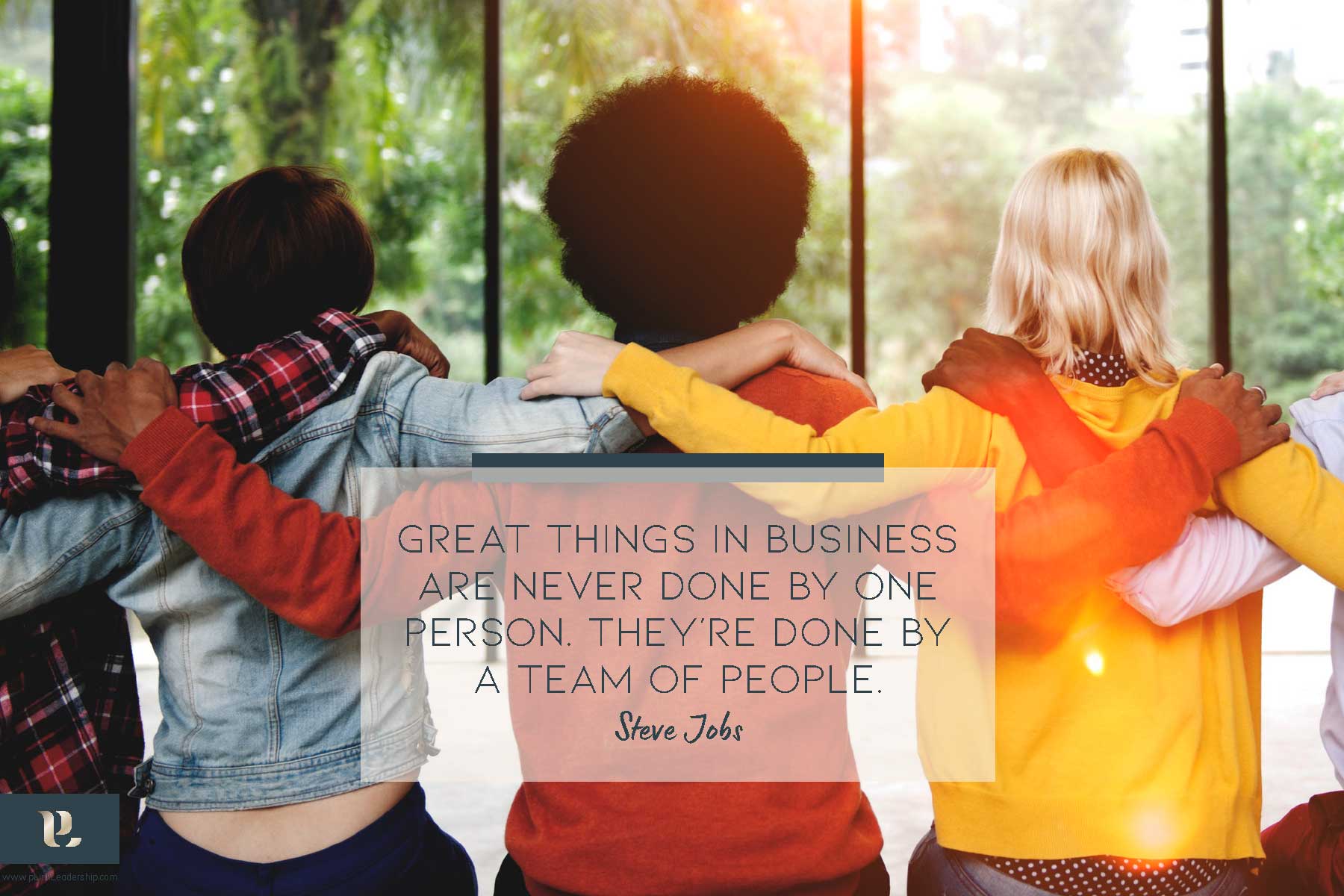Have you ever worked on a team where the energy, drive, and engagement are high, and together you deliver great results? Have you ever worked on a team where there is a lack of connection and communication, and it feels like you’re paddling through pudding to achieve your goals? Teams have their own energies and personalities as individuals do, and, like individuals, there are those who are high-performing, those who are struggling, and those who are somewhere else on the success-to-struggle continuum. Two teams doing the same work at the same organization can have very different productivity and success rates. So the question is, “How do you build up your team so that you are traveling on the success side of the continuum?”
Research and books abound about leadership and teamwork, and in this short article are some top liners that we often use in our practice:
Strengths Focus
We know from Gallup’s research that there is no such thing as a well-rounded leader. That the best leaders lead from their suite of strengths, and create well-rounded teams by bringing individuals with diverse strengths together, covering all bases from an execution, influencing, relationship building, and strategic strength perspective.
TIP: Do an audit and determine if your team members are in roles that capitalize on their strengths. Visit Gallup Strengths Center.
Values Alignment
In the same way that you want a team diverse in strengths, you also want to create a team aligned in values. It’s important that the values are visible to the team and that they are in practice, not only aspirational.
TIP: Identify your team’s values and how they are showing up at work. Visit VIA.
Building Trust
Trust is a big and somewhat squishy topic, with multiple models and research to describe it. One thing is clear, though – when trust is breached, it’s guaranteed to have an impact on your team. It’s important to have a shared and operational definition of trust, a recipe that you can use to build trust, and one that can be used to diagnose and make amends in trust breaches. An evidence-based model we commonly use has the acronym, BRAVING. It comes from Brené Brown’s research, and posits that trust is made up of the following ingredients: Boundaries, Reliability, Accountability, Vault, Integrity, Non-judgment, and most Generous assumption.
TIP: Using each ingredient of trust, think about how you can intentionally build and decode trust, both individually and as a team.
Understanding The Science of Motivation
Dan Pink’s research in motivation, presented in his book “Drive,” states that intrinsic motivation is made up of autonomy, mastery, and purpose. These elements are key to creating and maintaining motivation in your team.
TIP: Set clear pace and direction and give your team the autonomy to get there.
Communication
The importance of communication cannot be underrated. Research at MIT reported that successful teams had 3 E’s – Energy (how each team member contributes to a team as a whole), Engagement (how team members communicate with one another), and Exploration (how teams communicate with one another).
TIP: Notice how energy, engagement and exploration shows up in your team.
TEAMING
We used to have the luxury of stable teams, but our new global economy often calls for teamwork on the fly, or, as Amy Edmondson calls it, TEAMING. As we grapple with the VUCA (Volatile, Uncertain, Complex, Ambiguous) environment, we need a new way of working that allows for teams to be successful, without necessarily having the foundation that an existing team has developed. While this may not be the most comfortable way to work, Edmonson recommends best practices for teamwork on the fly, including, 1) speak up, 2) listen intensely, 3) integrate different facts and points of view, 4) experiment iteratively, and 5) reflect on your ideas and actions. You can hear her talk about it on the YouTube link below.
TIP: Reflect on which of these 5 elements your team does well and which it might do better.



